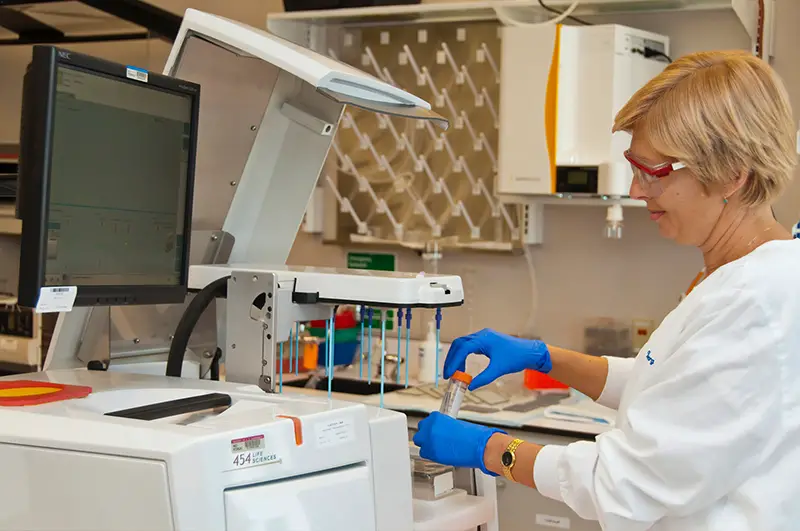Click here to get this post in PDF
Now more than ever, it’s imperative that positions in the fields of life science are consistently getting filled. Looking for ways to fight diseases, managing clinical trials, and many more opportunities are calling, looking for the right people. You are tasked with finding these people and determining how well they can best serve your company and by extension, the greater public.
Granted, this task may seem daunting. It’s not about looking for someone who can best upsell popcorn at the movies with a smile on their face. This is about looking for someone who is not only qualified but also equally passionate about the position, is actively pursuing higher knowledge about their chosen practice, and most importantly, how they conduct themselves around others.
Here are some strategies you can implement whilst searching for and recruiting life science candidates for your lab.
Look for Key Academic backgrounds
First and foremost, you need to make sure that any potential candidates are backed up with relevant education about the field. If you are looking for a microbiologist, you’re going to want someone with a B.S. in Biology or Microbiology. If you’re looking for a pharmacologist, someone with a degree in Architecture probably isn’t going to be the best choice.
Of course, you’re not looking for people who had to have graduated from Harvard or MIT (although they do have excellent life science degree programs). You’re just looking for someone who has an academic background related to the field they are applying for.
Of course, the argument could be made that not everyone who succeeds in their career has to go to college, however, when it comes to life sciences, it’s a lot more difficult to gain the proper knowledge merely from the internet and relevant books. It’s also where people can get access to different tools and technologies so that they can note experience before they apply for work.
One other aspect that deserves some consideration is whether or not the job should require a Ph.D. It is harder for those with a specific degree to find employment, which consequently leads to fewer people pursuing the degree in the future.
Opening the position up to those who have a B.S or M.S degree will lead to many more applicants, happy to find an employer who is giving them a chance. Doing this may also help you fill the position significantly quicker if there is a more urgent need.
It may also be beneficial to check what kind of extra-curricular activities that these candidates have been involved in during their academic careers. Someone who was active in the biology club or an officer in their school’s chapter of the Science National Honor Society may have the potential to become a leader and work their way up in your company. Playing an active part in organizations such as these will show that they’re not just doing what they think employers will look for in terms of majors, disciplines, etc.
Prepare a list of industry-specific questions
Anybody can walk in with a well-pressed suit and a degree, but if they can’t back that up with the proper knowledge that the field requires, then they are not going to be the right fit for your business.
Granted, everyone should know basic life science facts, like how the mitochondria are the powerhouses of the cell. Those with a background in anatomy should know what the meta-tarsels are and where they are in the body. You’re not looking to remind them of quizzes back from middle or high school. Rather, you’re looking for more advanced, even more specific information that they should have before coming to YOUR company in particular.
If your organization or company has some kind of mission statement, your candidate should be able to know what it is. Experience is a great plus, especially in this industry where people are potentially handling hazardous chemicals. They should also have some understanding of using different technology that comes with the job, as it would be a bit silly to apply to a science job having never used a microscope before.
Ask them what they would like to learn more about
When a candidate is presented with a question that has them use their critical thinking skills, you as the employer will be able to get a good sense of their thought process and what lies beneath a seemingly well-trimmed and cheerful demeanor.
A lot of times in our education system, we are taught how to absorb and regurgitate information and there isn’t a lot of room for our own opinion or creativity. Being able to come up with our own ideas and chase others are a valuable asset for any company.
Open-ended questions such as, “Why did you take an interest in (insert field here)?”, “Is there a particular researcher/doctor/scientist that you admire and why?” are usually ones that candidates get trained to practice in school, so they will be more prepared to answer them.
Asking these questions is also a great way to learn more about them on a personal level. Don’t be afraid to give them a little time to think about it, as it will show that they care about the question.
Assess how they present themselves around you and others
Whether you’re looking for an administrative assistant or a medical director, you need someone who can work well with people. This is a given within any industry in the world, but it is specifically important to life sciences.
That is because the people you are hiring are going to be working in a team, doing crucial research, and getting information to the public on personal topics. What’s more personal than a person’s health and well-being?
If you have a reception desk, check on how the candidate interacts with the receptionist. You can keep a separate space on your hiring form just for this criteria. You can even excuse yourself in the middle of the interview, go to the desk, and ask the staff member about their experience with this person. It may sound like a little much, but it is a great way to get a better sense of a person’s first impression, even if it’s not between them and yourself.
Have candidates write up a make-shift report
When you’re performing research, organizing prescriptions, or doing quality assurance checks, you’re expected to do a lot of writing. There are going to be a lot of people who read the reports and follow up with those who made them.
If they cannot comprehend or be able to translate what is writing on the paper or online document, it slows down production and causes trouble across the entire chain. That’s why it’s really important to add quality writing skills to your list of requirements you should expect from potential candidates.
Inform the candidates of a pretend study that was conducted with all of the quantitative and qualitative data at their disposal. Make sure to limit the wording so that they can’t copy or just add extra fluff in order to make the report sound original. Task them with writing up a short report of their findings, and let them know that the audience is consisting of people who aren’t as familiar with the field of study, so they should simplify it as much as possible.
You can have this be a requirement to the application, so they can hand it to you or send it over electronically before you meet them in person. Or, to test their skills on the spot, you can give them 10-15 minutes in the interview room by themselves to write it up for you to collect at the end. If you have multiple candidates interview within one day, you can have a nice pile of reports to look over at the end of the day, and it may help you narrow down your choices.
Other employers across a wide variety of fields keep an eye out for good writers because they demonstrate skills such as coherent communication skills, self-sufficiency, and quality thinking abilities.
Not only one’s handwriting but also how they write and convey their ideas says a lot about a person. Humans only meet a limited number of people in person throughout their lives, but words reach even more. Everyone wants to put the best version of themselves out to the public, so they should strive to be a good example through their writing.
Hiring Great Employees
With all of these strategies in mind, you should now have a better idea of the kind of person that you want to work in your field. They should have the know-how, a curious mind, be a cohesive and accurate writer, and able to work well in a team. In short, they should be a well-rounded individual with a background in science.
You’re not necessarily looking for the person who will eventually figure out the cure for cancer. While that would be an amazing bonus, you’re mainly thinking about who will be the best representative to your company or organization out of all of the other candidates who come your way. Now you may go with confidence and trust in your best judgment with all of these strategies to guide you along your way.
You may also like: Top tips for effective HR management strategy
Image source: Unsplash.com



